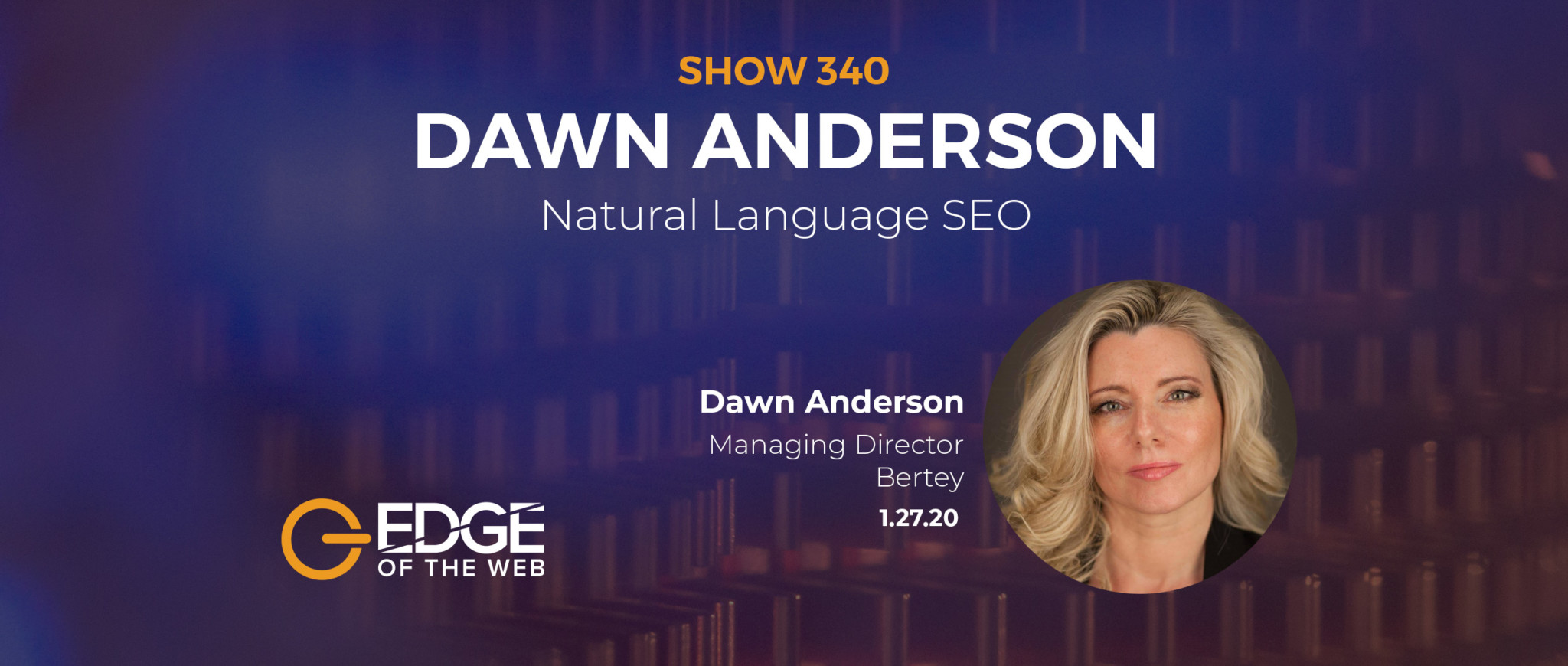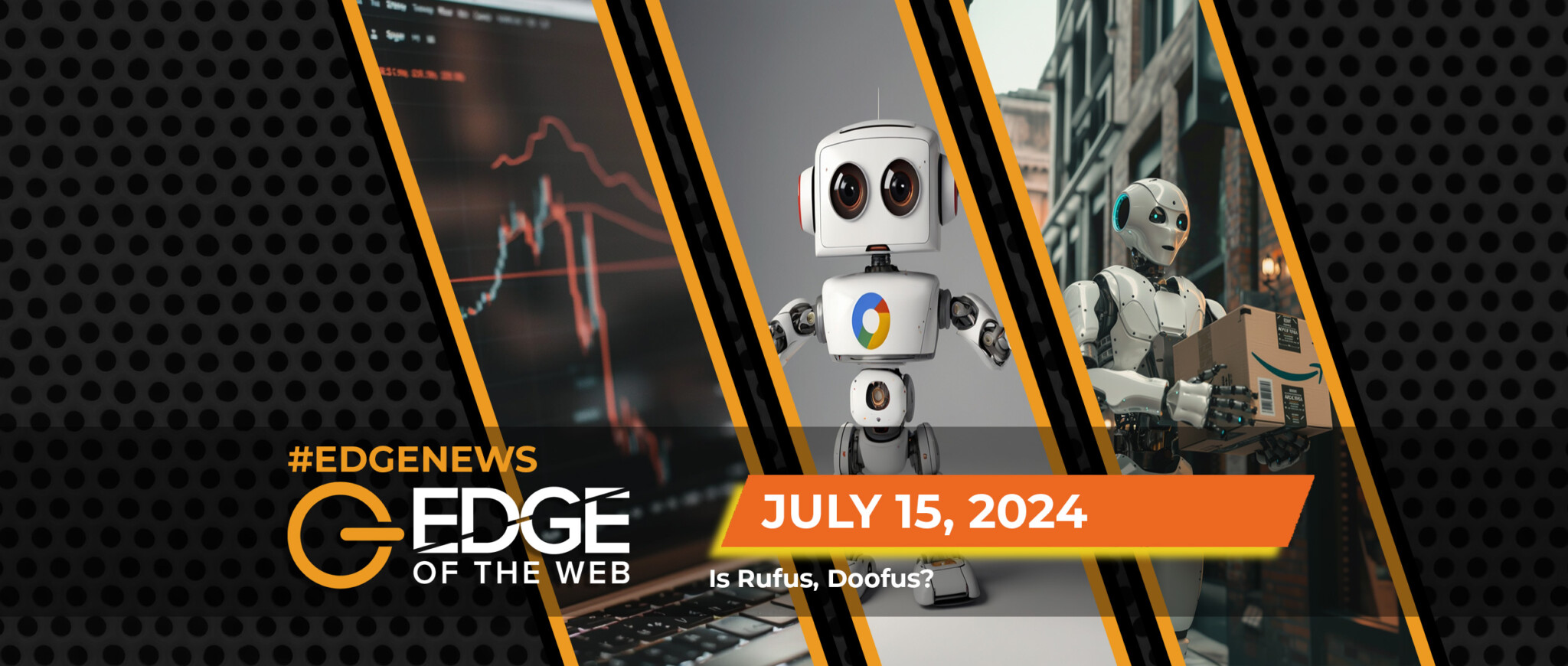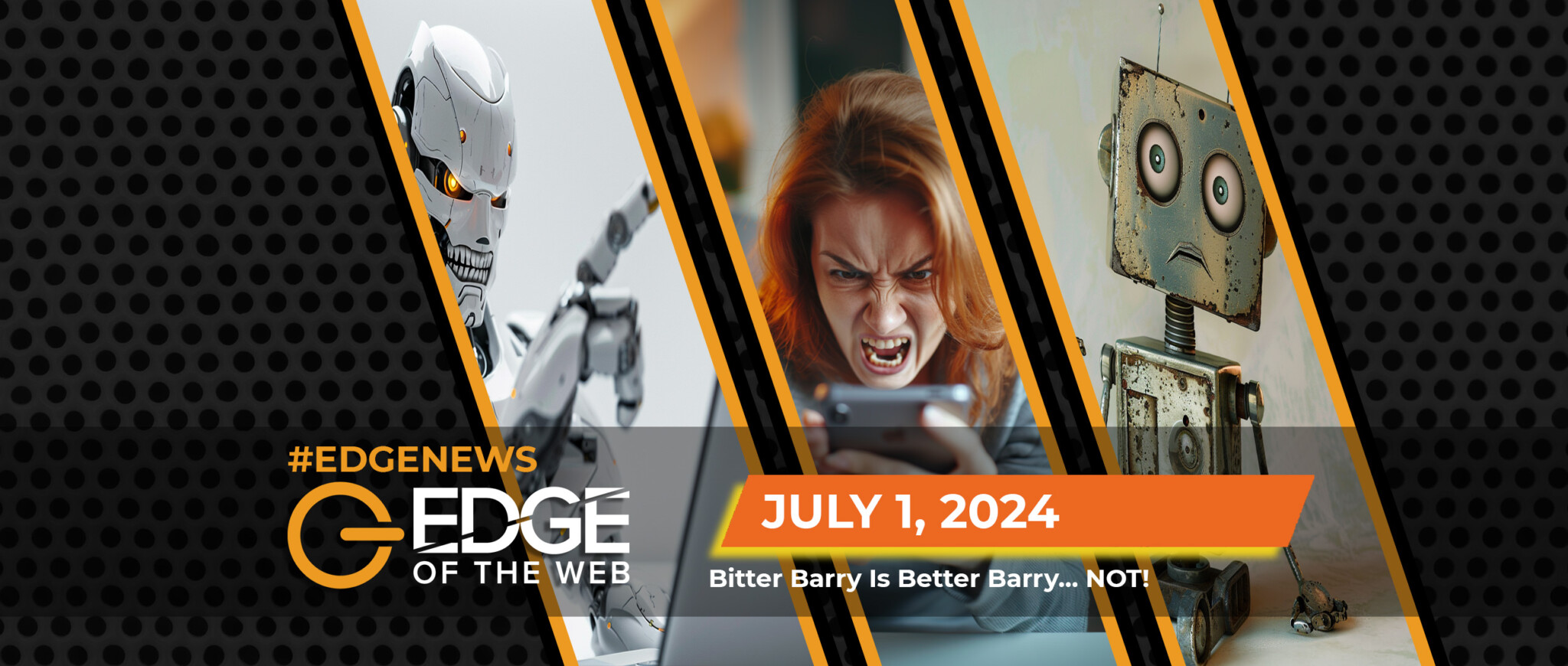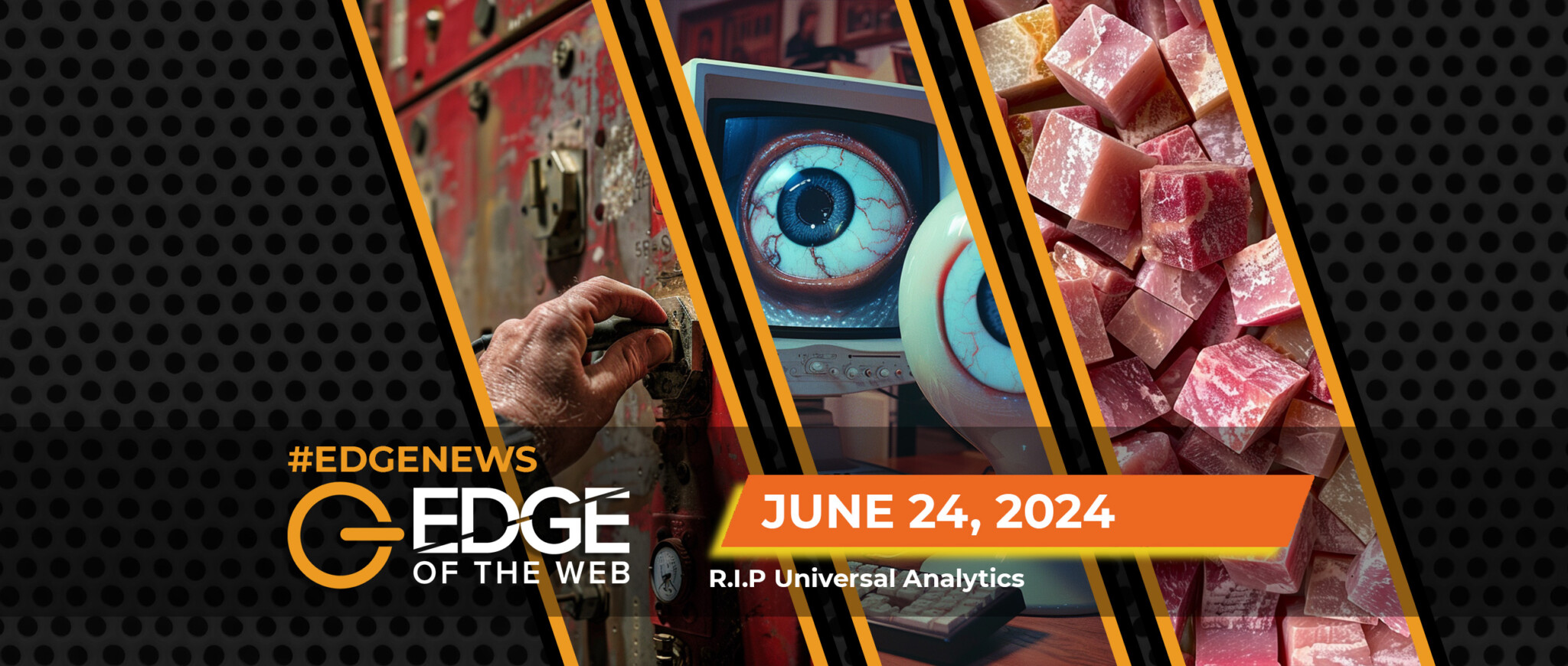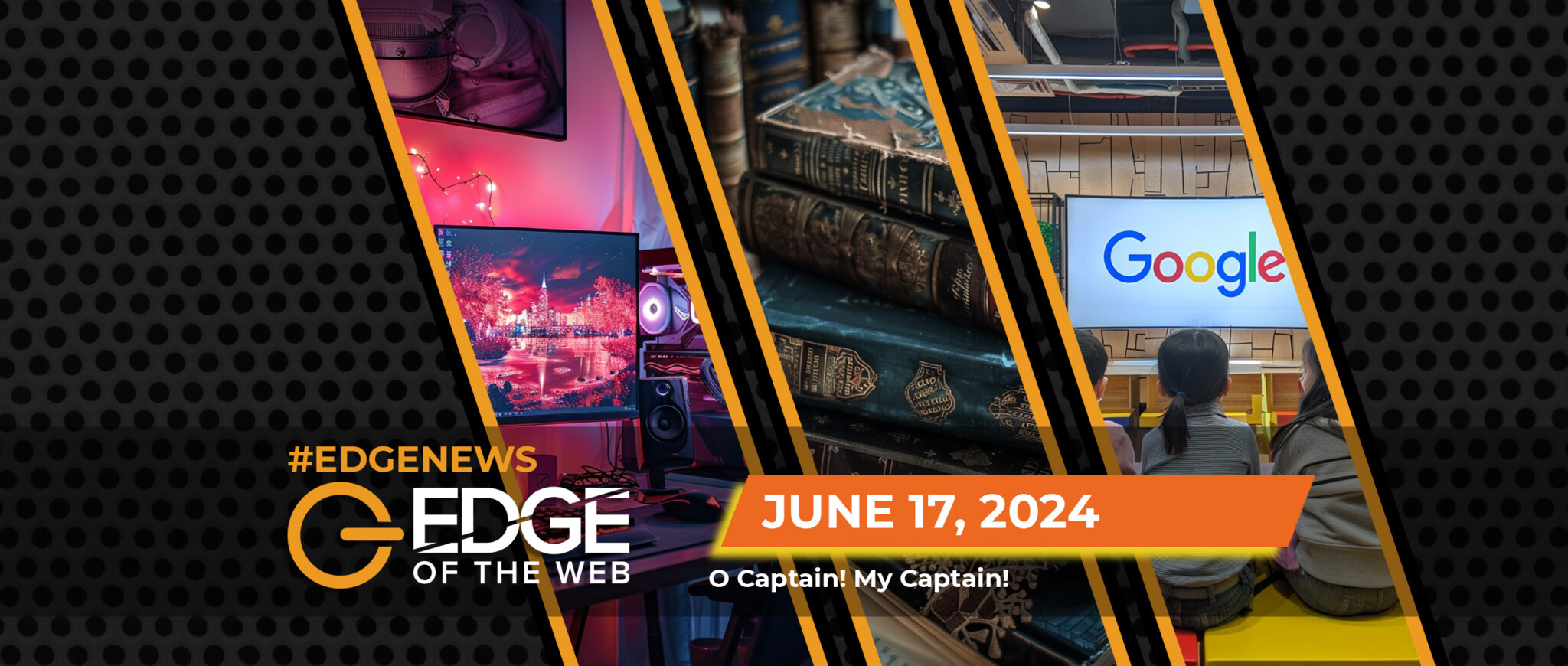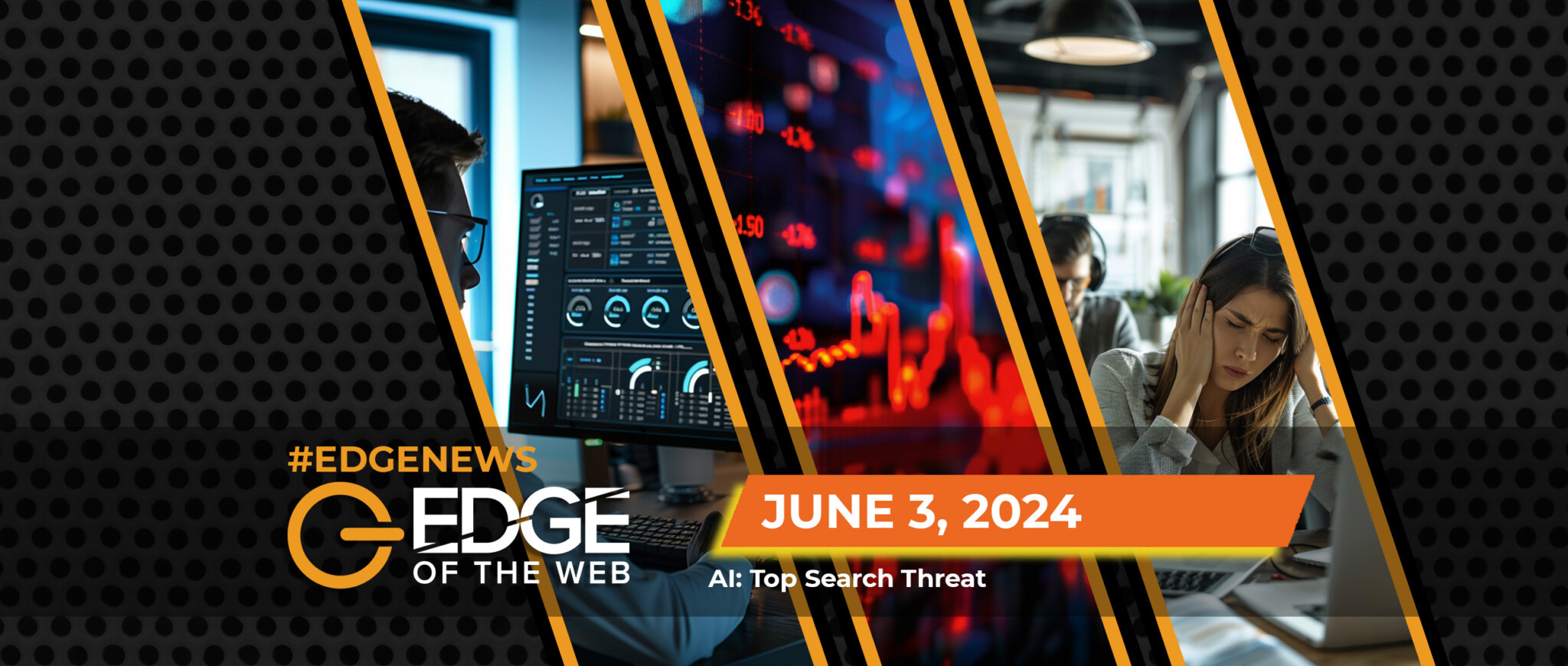When it comes to insightful analysis of the latest digital marketing headlines, you can rely on the news roundup segment in each episode of the EDGE. The latest features host Erin Sparks and Creative Studio Producer Jacob Mann along with special guest Dawn Anderson, Managing Director of Bertey. Here’s the news roundup from Episode 340 of the award-winning EDGE of the Web podcast:
Is ‘dwell time’ the next big thing for SEO?
On Impact, Kaitlyn Petro asks Is ‘dwell time’ the next big thing for SEO? According to Search Engine Journal, “Dwell 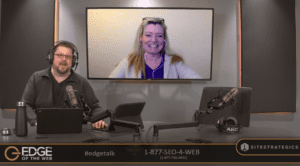 time is the length of time a person spends looking at a webpage after they’ve clicked a link on a SERP page, but before clicking back to the SERP results.”
time is the length of time a person spends looking at a webpage after they’ve clicked a link on a SERP page, but before clicking back to the SERP results.”
- Erin Sparks: A recent Hubspot article highlighted the importance of “dwell time” because it really shows where users are spending the time to consume your content. Dawn, how important do you think this notion of dwell time is?
- Dawn Anderson: Dwell time as a metric is very important, but as with any metric it needs to be looked at in combination with other metrics, and they all need to be understood correctly. Bounce, for example, is a very messy, noisy metric and many people don’t understand how to make the best use of it. But when you put bounce and dwell together, then you can really start to get some insights. Generally speaking, if dwell time is rising and bounce rate are falling, that’s a good thing, but you have to really look at both and also look at them on the page level, which is where they have their greatest relevancy. If it’s just a contact page where someone is looking for your phone number, neither metric is really all that valuable. But if it’s a page with a lot of valuable content and calls-to-action, then yes those metrics are going to be more relevant. And then there’s user intent as well. Say, for example, someone is shopping for something they want and they arrive to your site through a long-tail query, find what they’re already looking for and throw it right into their cart and off they go. Maybe dwell time isn’t such a great metric for that kind of user because they’re not looking to dwell, they’re looking to do what they came to do and then leave. There’s a lot of context to consider here and not just pigeonholing everything into one very limited metric.
Facebook deals with more lawsuit trouble
According to Taylor Peterson on Marketing Land, Facebook deals with more lawsuit trouble. Four tech firms have launched a lawsuit against Facebook on antitrust grounds, demanding that Mark Zuckerberg give up control of the company. The four little-known firms – two of which are now defunct – teamed up to accuse Facebook of running “the most brazen, willful anticompetitive scheme in a generation,” according to the action filed in January 2020.
- Erin Sparks: Among Facebook’s anticompetitive actions mentioned in the suit are its acquisition of both Instagram and WhatsApp, effectively eliminating competitors. Facebook’s response is that of course in a highly competitive environment there are going to be plaintiffs with attorneys who see financial opportunities through litigation, but cases like this simply have no merit whatsoever. When you’re as big as Facebook, can it just be assumed you’re going to be the target of actions like this no matter what?
- Dawn Anderson: What surprises me is how these tech companies can grow to be such huge entities with monopolistic power before governments even consider stepping in to regulate them. It seems like earlier government intervention should happen before they grow into such giant companies with so much power. In the UK the government takes a much more active role to prevent monopolies from emerging in the first place. Monopolies do have some useful advantages that should be allowed to some extent, but with these tech giants it’s just raw acquisition monopolizing, and that’s why they become the objects of so much frustration and litigation. Each tech giant acts as if they have the right to jump into any business model/arena and have a go at it, and they’ve got the resources and clout to make it happen – but at the expense of other companies making a go of it. So the giants either keep growing through acquisitions or launching their own efforts to take over a vertical.
- Erin Sparks: Litigation does feel like the only way to fight back, at least as long as it’s a legitimate claim.
Webpages with Featured Snippets Won’t Appear Twice on Google Page 1
From Matt Southern on Search Engine Journal we learn that Webpages with Featured Snippets Won’t Appear Twice on Google Page 1. Google’s Danny Sullivan has confirmed that webpages in a featured snippet position will no longer be repeated in regular Page 1 organic listings. This is a brand new change rolling out as of today. The change will affect 100% of all search listings worldwide.
- Erin Sparks: No more double-dipping! Being a featured snippet is a huge advantage. But we also still want to get that organic click traffic. Now with this new change, people are seeing organic click traffic fall from 19% down to just 6%. That’s a hard pill for many to swallow.
- Dawn Anderson: Google says the reason they’re doing this is to make for a better and less confusing user experience. So maybe users don’t want to see two results from the same company because it annoys them. But Google theoretically is doing this because it’s better for the user. Unfortunately, that means some companies are going to lose traffic, but it really was double-dipping so they were enjoying what could be called an unfair advantage.
- Erin Sparks: One person really wanted to clarify what happens if you lose your featured snippet. Goggle did specifically say if that happens, then you’ll get back your organic listing at whatever rank it is worthy of. But that feels like a very stressful place to be in.
- Dawn Anderson: But the thing to keep in mind with these kinds of changes is how you react (or don’t react) to them. A lot of time in the industry is wasted by pushing back against these kinds of changes, and that’s simply a waste of time for the most part. The changes will keep coming, and unless something comes out that is broken or a mistake, you need to understand the change and its impact on you and then move forward in the new reality. The constant resistance is simply not productive. Especially if a change is probably driven by Google doing what users want or what makes for better user experience. And if you don’t “go with the flow” of Google’s changes, then you might find yourself left behind when other great features helpful to you come out.
Connect with Dawn Anderson and Bertey
Twitter: @dawnieando (https://twitter.com/dawnieando)
LinkedIn: https://www.linkedin.com/in/msdawnanderson
Bertey Web: https://bertey.com
Bertey Twitter: @BeBertey (https://twitter.com/BeBertey)
Bertey Facebook: @BeBertey (https://www.facebook.com/BeBertey)
Get Your Digital Marketing News from the EDGE Newsletter
When you want the latest digital marketing news you can use, you don’t have to visit a dozen different sites and read a bazillion articles. You can have your digital marketing news curated and delivered directly to your inbox! Go to EDGEofthewebradio.com and you’ll see the subscribe box at the very top of the page. It’s free-of-charge, and we will never use your email for anything except sending you the newsletter. You can also sign up by texting the word “EDGETalk” to 22828, but not while you’re driving! Enjoy these digital nuggets of gold from the EDGE – your source for digital marketing news.




